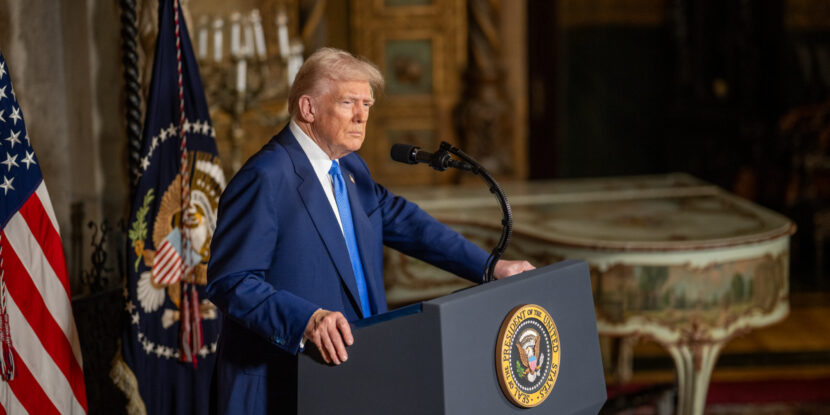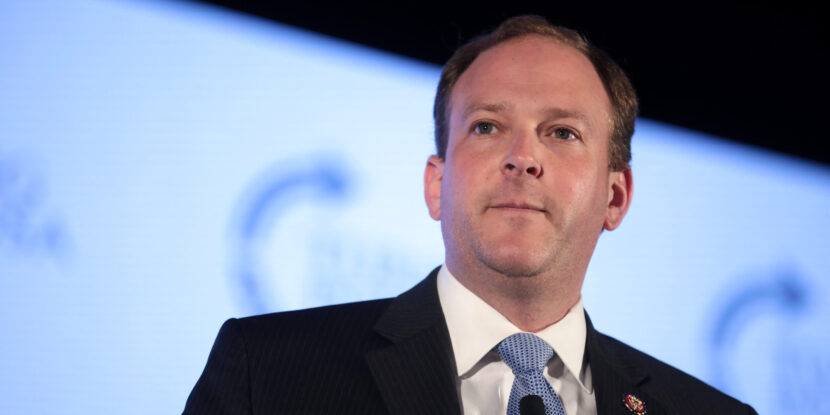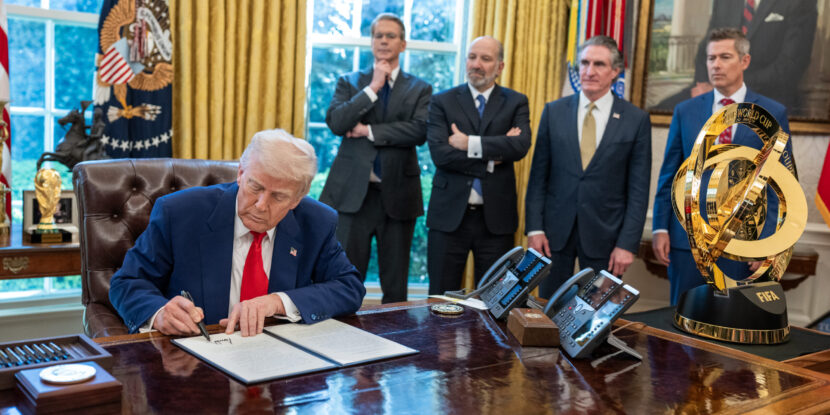
PULSE POINTS:
❓What Happened: President Donald J. Trump announced significant changes to the Federal procurement policy to enhance competition, efficiency, and cost-effectiveness. The existing Federal Acquisition Regulations (FAR) will be revamped through a comprehensive review by the Office of Federal Procurement Policy.
👥 Who’s Involved: President Trump, the Office of Federal Procurement Policy, the Federal Acquisition Regulations Council, and OMB Senior Advisor Kevin Rhodes.
Your free, daily feed from The National Pulse.
📍 Where & When: Washington, D.C., with the announcement made on April 16.
💬 Key Quote: “This RFO will reduce more than 40 years of bureaucratic buildup that will unleash our procurement system with generational change and results. We are Making America Great Again,” said OMB Senior Advisor Kevin Rhodes.
⚠️ Impact: The anticipated overhaul aims to streamline the procurement process, lower entry barriers for new businesses, and eliminate inefficiencies for government contracts valued at nearly $1 trillion annually.
IN FULL:
President Donald J. Trump has unveiled an initiative to reform the Federal procurement system, significantly altering the rules surrounding government purchasing. Every year, a large portion of government waste is abetted by current procurement rules, which total over 2,000 pages and nearly 3,000 directives. These rules make it difficult for vendors to navigate and allow loopholes that can cause taxpayer dollars to be squandered.
According to the Trump White House, the Office of Federal Procurement Policy (OFPP) within the Office of Management and Budget (OMB) will overhaul the Federal Acquisition Regulations (FAR). The office is being tasked with streamlining procurement rules to remove redundant and conflicting regulations that have ballooned the total price of annual federal purchases to over $1 trillion over the years.
Under the current byzantine FAR procurement process, massive and bloated consulting firms, contractors, and other vendors hold the advantage because they can absorb the high costs of compliance, leaving new entrants at a disadvantage. The prohibitive compliance costs reduce competition for government contracts and increase the financial hit to taxpayers.
Key changes will include writing the FAR in simpler language, removing non-statutory and repetitive rules, and dismissing outdated requirements. Furthermore, a push for effective procurement is emphasized by discarding unnecessary items like paper straws and focusing on securing high-quality products and services at competitive prices.
“This RFO [Revolutionary FAR Overhaul] will reduce more than 40 years of bureaucratic buildup that will unleash our procurement system with generational change and results. We are Making America Great Again,” OMB Senior Advisor Kevin Rhodes said in a statement following the announcement of President Trump’s reform directive. The initiative complements efforts undertaken by the Department of Government Efficiency (DOGE) to reduce federal employee redundancies and government waste.

PULSE POINTS:
What Happened: The Trump-led EPA has launched an investigation into Make Sunsets, a solar geoengineering startup, for releasing sulfur dioxide into the atmosphere, prompting concerns about air quality violations under the Clean Air Act.
Who’s Involved: EPA Administrator Lee Zeldin, Make Sunsets founders Luke Iseman and Andrew Song, and the EPA’s Office of Air and Radiation.
Your free, daily feed from The National Pulse.
Where & When: EPA Headquarters, Washington, D.C., April 14, 2025, with a public statement from Zeldin on April 15, 2025.
Key Quote: EPA Administrator Lee Zeldin stated on X, “Make Sunsets is a startup that is geoengineering by injecting sulfur dioxide into the sky and then selling ‘cooling credits.’ This company is polluting the air we breathe.”
Impact: The EPA’s actions could lead to monetary penalties or criminal charges for Make Sunsets, potentially setting a precedent for regulating geoengineering activities in the U.S., amidst broader Trump administration efforts to deregulate climate policies.
IN FULL:
The U.S. Environmental Protection Agency (EPA), under the leadership of President Donald J. Trump’s Administrator Lee Zeldin, has initiated what it says will be a swift investigation into Make Sunsets, a startup accused of polluting the atmosphere through geoengineering. On April 14, 2025, the EPA’s Office of Air and Radiation issued a letter to Make Sunsets founders Luke Iseman and Andrew Song, demanding information within 30 days to determine if the company’s activities violate the Clean Air Act.
Make Sunsets has been releasing sulfur dioxide into the stratosphere via weather balloons, aiming to reflect sunlight and cool the planet—selling these balloon flights online in the form of so-called “cooling credits.” The Trump administration is acting against the startup due to its potential to degrade air quality, coupled with a lack of regulatory oversight.
Zeldin took to X (formerly Twitter) on April 15, 2025, to explain the situation, stating, “Make Sunsets is a startup that is geoengineering by injecting sulfur dioxide into the sky and then selling ‘cooling credits.’ This company is polluting the air we breathe. I’ve instructed my team that we need to quickly get to the bottom of this.”
The EPA’s letter, signed by Abigale Tardif, Principal Deputy Assistant Administrator of the Office of Air and Radiation, cites Section 114(a) of the Clean Air Act, which empowers the agency to demand information from entities suspected of impacting air quality. It warns of potential enforcement actions under Section 113 of the Act, which includes fines and criminal penalties for non-compliance or providing false information.
On behalf of Make Sunsets, Iseman previously argued, “It’s morally wrong… for us not to be doing this.” However, the company has already been banned in Mexico following unauthorized sulfur dioxide releases in Baja California in 2022. Notably, this prompted the Mexican government to prohibit solar geoengineering experiments altogether in 2023.
Make Sunsets later conducted launches in Nevada, which also drew scrutiny for failing to report to the National Oceanic and Atmospheric Administration (NOAA) despite requirements under U.S. law. Critics, including environmentalists and scientists, have long warned that such geoengineering efforts lack sufficient scientific backing and international governance, posing unpredictable risks to the environment and public health.
The investigation into Make Sunsets could set a significant precedent for regulating geoengineering in the U.S., a field that remains largely ungoverned both domestically and internationally.
READ:
Make Sunsets is a startup that is geoengineering by injecting sulfur dioxide into the sky and then selling “cooling credits.” This company is polluting the air we breathe. I’ve instructed my team that we need to quickly get to the bottom of this and take immediate action. pic.twitter.com/9b6xPzMf4v
— Lee Zeldin (@epaleezeldin) April 15, 2025
show less

President Donald J. Trump signed an Executive Order aimed at slashing prescription drug costs—with insulin reduced to three cents for low-income Americans.
The details: Trump’s order takes aim at drug costs and Big Pharma from several angles:
Your free, daily feed from The National Pulse.
- Insulin: Prices drop to as low as three cents for low-income and uninsured patients.
- Epinephrine: Injectable doses fall to $15.
- Cancer drugs: Standardizing Medicare payments for prescription drugs, like cancer treatments, which can lower prices by 60 percent.
- Generics: Boosted access to biosimilars, which can be up to 80 percent cheaper.
- Middlemen: Order demands transparency from pharmacy benefit managers and pushes reforms to the entire supply chain.
- Drug importation: States can import lower-cost meds, including for sickle cell.
Back up: In 2020, Trump launched a program to give seniors access to $35 per 30-day supply of insulin. Biden let the program expire and then rolled it into the 2022 Inflation Reduction Act (IRA) and took credit for it.
Eclipsing Biden: The IRA also created the Medicare Drug Pricing Negotiation Program, which allowed Medicare to negotiate drug prices directly with pharma companies for high-cost prescription drugs.
- In its first year in effect under Biden, the program netted a 22 percent reduction in prices. Trump’s order aims to “eclipse” that number.
Big picture: Roughly 68 million Americans are enrolled in Medicare—meaning these reforms will touch roughly 20 percent of the U.S. population.
Be sure to subscribe to the Wake Up Right newsletter!
show less
President Donald J. Trump signed an Executive Order aimed at slashing prescription drug costs—with insulin reduced to three cents for low-income Americans. show more

 2 months ago
2
2 months ago
2








 English (US) ·
English (US) ·